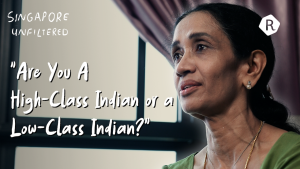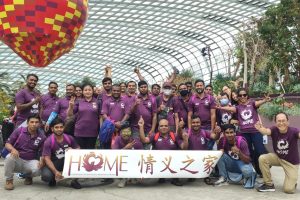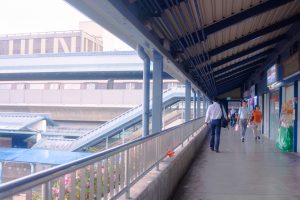In the past couple of weeks, the internet has been choked with news on an advertising campaign for E-Pay and the subsequent rap video response by siblings Preeti (better known as Preetipls) and Subhas Nair.
The entire affair was pretty much a textbook example of the Streisand effect—the police report and government decree to gag the video introduced its contents to a larger, mainstream Singaporean audience. Many netizens were set off by the line “Chinese people always out here f*cking it up.” Singaporeans with different viewpoints went up in arms, and local comment threads were set ablaze. Some demanded for the Nair siblings be imprisoned. Others called for accountability from the makers of the original E-Pay ad for their casual dehumanisation of Indian people.
The ensuing fiasco encircled the E-Pay ad and, to a larger degree, the Nair siblings. But amidst all the chaos, a local news channel silenced the true victims of the incident.
At the time of the rap video’s release, CNA had already filmed and produced a television documentary, entitled “Roar!”, which was set to premiere on 3 August. The documentary follows the journeys of several musicians—Benjamin Kheng, Aisyah Aziz, Wan Weiliang, Subhas, and Migrants Band Singapore—as they craft songs for this year’s National Day. Subhas and Migrants Band Singapore collaborated on the alternative rap track “Utopia”, and meant for the song to be a subversive critique of wealth inequality in Singapore—an issue naturally close to the hearts of the music ensemble.
Why? Because Migrants Band Singapore is a vibrant music group formed by migrant construction workers in Singapore. When they’re not performing backbreaking manual labour under the sun, they dedicate their time to creating music and showcasing Bangladeshi culture. The band members make a living by laying the (literal) foundations for Singaporean society, and this is, evidently, an occupation that offers no luxuries. Our city-state ensures our rapid development at the expense of these workers’ basic freedoms. And with just a few days till the premiere of “Roar!”, CNA cut footage of the band out of the documentary. In addition, they wiped any mention of the musical collaboration between Subhas and the band from their website.
This was a knee-jerk reaction on the part of the news channel. The erasure happened almost immediately after other mainstream news outlets published articles on the police investigation against the Nair siblings. To explain the removal of Subhas and Migrants Band Singapore from the documentary, CNA stated that, regarding the rap video, it “strongly objects to all such offensive content which threatens racial harmony and will not associate with individuals who intentionally create such content. As a result, CNA has removed Mr Nair from its upcoming musical documentary ROAR and taken down the articles related to his involvement in this programme.”
It is truly ironic that, in their desperation to publicise their support for racial harmony, they revealed the opposite through their apathy toward migrant construction workers.
Migrants Band Singapore appears exactly zero times in CNA’s statement. The game-changing musical collaboration was written off as Subhas’ project and his project only. This was despite the news channel’s in-depth understanding of the song’s importance. After all, the news channel followed the musicians closely in their creative process to film the documentary, and the now-deleted article on the project was titled “Singapore rapper collaborates with migrant workers for a different kind of National Day song.”
Once again, migrant workers had no say in their treatment. Their heavy involvement in the musical project “Utopia” has disappeared completely from mainstream media outlets. Singaporean netizens were only alerted to the disappearance because vocal acquaintances of Subhas recalled the content of the deleted article and checked the article’s now-defunct URL.
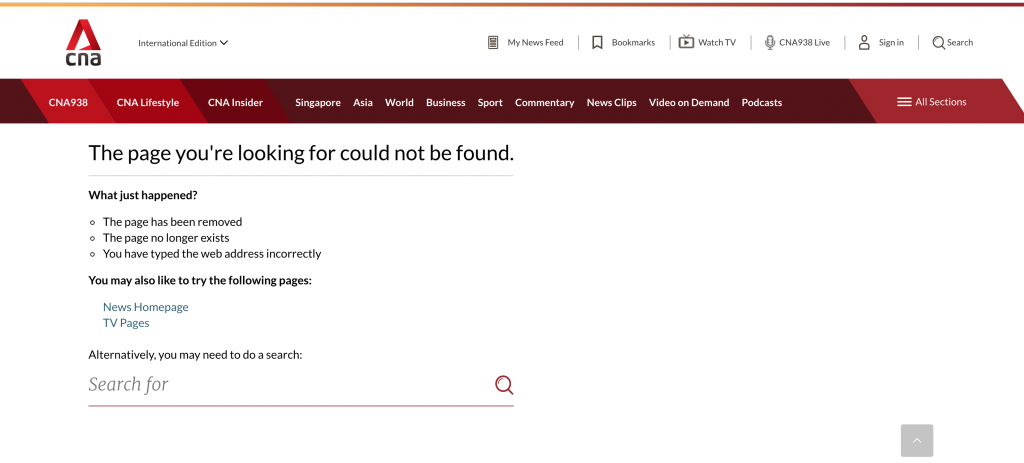
In an effort to bring attention to their erasure from the Channel News Asia documentary, Sand Magazine launched an online petition on 1 August calling for the news outlet to reconsider their decision. To date, the petition has gathered 5,805 signatures, and zero responses from the news channel.
What message does CNA send Singaporean viewers, when Bangladeshi workers can be dropped from a project as if they had never existed? The gravity of this cut-throat decision is exacerbated by the fact that migrant workers barely have platforms outside of this musical project to air their own voices. It is in the nature of reports, surveys, and newspaper articles to refer to their population as a mere statistic. For many of them, music is the only avenue they have to reclaim their place as thinking, feeling, and creative individuals. And this has been stripped from them.
In the lives of middle-class Singaporeans, music is something that injects fun and aesthetic enjoyment into our lifestyles. But within the context of a suffocating climate which constantly denies them their humanity, music is so much more: it is something that reminds migrant workers of their incontrovertible worth. They’re hundreds of kilometres away from their families. They wear identical uniforms and hard hats. They’re not even allowed to use the restrooms in public facilities. If music is all they have left, it is something that we should fight to protect.
CNA could have placed a disclaimer at the beginning of the documentary explaining the events of the past week and their disapproval towards Subhas. They did not have to remove footage of the entire creative process.
The controversy that erupted over the last week after the release of the rap video does not justify Migrants Band Singapore’s erasure. The band is made up of individuals who exercised their own subjectivity in creating music for National Day, but were cast aside as collateral damage due to ongoing investigations against Subhas Nair, a separate individual. If we are willing to penalise a whole group of Bangladeshi workers for the actions of another person, then we are essentially making a statement about how they don’t matter. Did they even learn of the E-Pay ad and rap video incident? Have we stopped to ask if anyone had explained the situation to them?
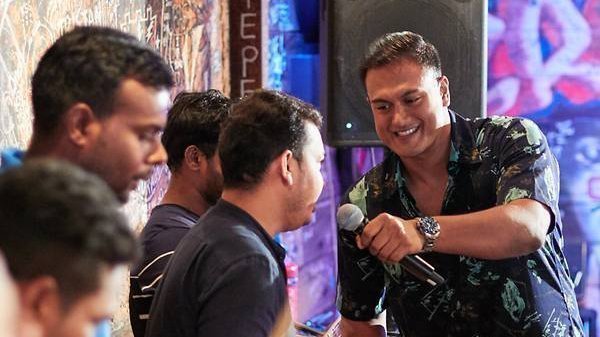
The statement quotes from the song, “We live in a system that has normalised us … to walk oblivious to a brown man stopped and ID checked,” and comments that the sentiment expressed in the song is “blatantly false.”
Perhaps, the officers conducting the inquiry into Subhas’ work history had not been informed of Migrants Band Singapore’s involvement. When interpreted within this context, the lyrics take on a different tone.
The full lyrics to the stanza are as follows:
“We live in a system that has normalised us
To window shop women as ready-made maids
And to walk oblivious to a brown man stopped and ID checked
Because he poses some kind of a threat…
And to see overcrowded lorries of sleep deprived men riding in the back with the equipment
When birthdays and new years wishes are video calls
From parents to children they haven’t seen in years because
They have left their children to raise ours, to build our buildings
And fulfil our pleasures in this South East Asian Utopia”
The lyrics do not describe the racial experiences of local Singaporeans. They describe the realities of migrant construction and domestic workers. They do so because they are the product of a collaboration with some of the workers themselves.
We should have paid more attention to all the people affected by the E-Pay ad and rap video debacle. We should have seen that Subhas wasn’t the only person at the mic. We should have contacted them as if they were equal stakeholders, because they were. We should have learnt their names, so that I could be mentioning them in this article. We should have, but we didn’t, because in Singapore, it is the default to ignore migrant workers. How many times do we have to let them down, before we learn?


